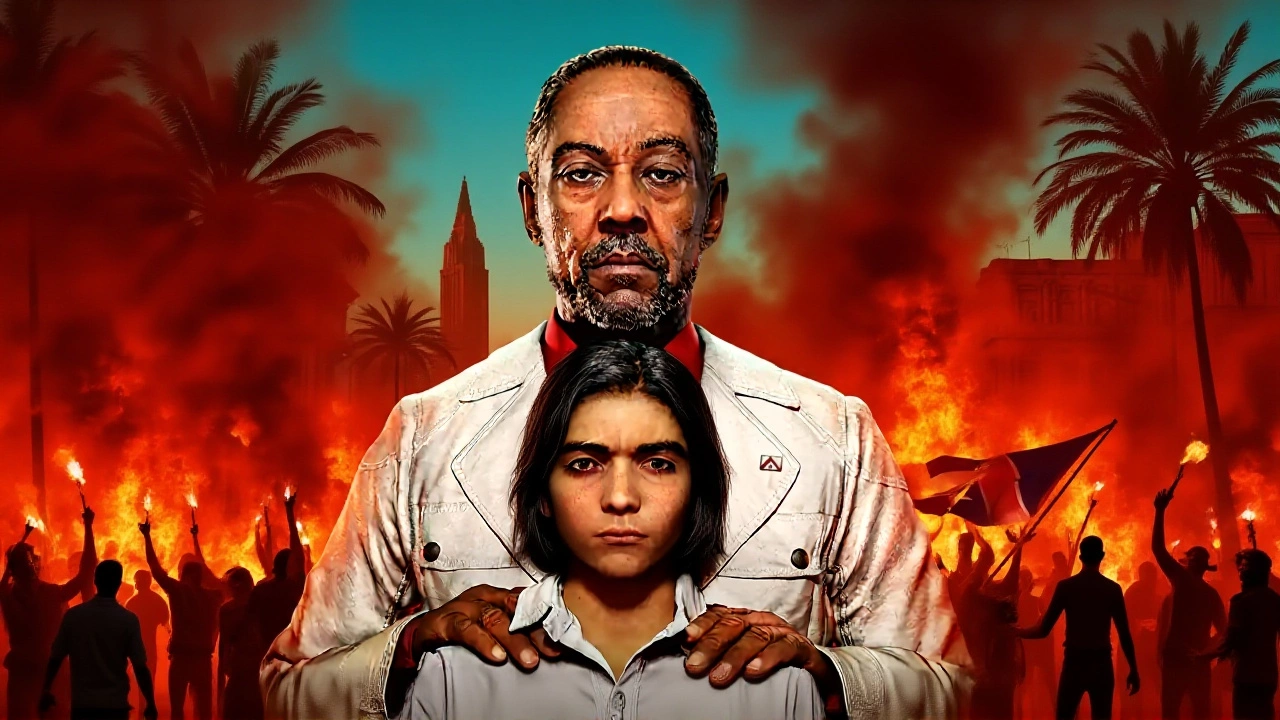Just minutes before its scheduled earnings call on Tuesday, November 18, 2025, Ubisoft Entertainment SA pulled the plug—halting trading of its shares and bonds on Euronext Paris and postponing its first-half 2025-26 financial results with no explanation and no new date. The move stunned markets, investors, and even its own employees. No one saw it coming. Not after the 11.31% share price spike earlier in the week. Not after the strong early sales of Assassin’s Creed Shadows. And certainly not on a day when the company was supposed to offer signs of life after three brutal years of missteps, cancellations, and leadership churn.
What Happened—and Why It Matters
At 4:31 PM UTC, Ubisoft Entertainment SA filed a formal notice with Euronext Paris, requesting an immediate trading suspension for its ENXTPA:UBI stock and corporate bonds. The official statement? Barely two sentences: "Ubisoft announces the postponement of the release of its results for the first half of fiscal year 2025-26." No reason. No timeline. No reassurance. Just silence.
That silence speaks volumes. Investors had been holding on to hope. The year-to-date stock plunge of -47.36% and the -49.91% one-year return were brutal, but the recent rally suggested a turnaround might be brewing. Assassin’s Creed Shadows, released just three days earlier on November 15, 2025, had already exceeded internal sales projections. Early engagement metrics were strong. Critics praised its narrative depth and technical polish. Yet, instead of celebrating, Ubisoft vanished.
The Weight of the Past
This isn’t the first time Ubisoft has stumbled. Since 2022, the company—founded in 1986 by the Guillemot brothers in Carentoir, France—has endured a cascade of crises. High-profile projects like Skull and Bones and Rainbow Six Extraction flopped. Studios in Montreal, Toronto, and Singapore were shuttered. Over 1,000 jobs were cut. Leadership changed twice in three years, with CEO Yves Guillemot taking the reins in 2022 after years of boardroom instability.
Now, the company employs roughly 20,000 people across 30 countries, but morale is low. The financials tell the story: market cap down to €2.8 billion as of November 17, 2025, from a 52-week high of €14.27 per share. The company’s reliance on blockbuster franchises—Assassin’s Creed, Far Cry, Rainbow Six—has become a liability. One misstep, one delayed launch, one underwhelming sequel, and the entire model cracks.
Conflicting Signals, Confused Markets
Here’s the twist: Simply Wall St’s analysis on November 18, 2025, labeled Ubisoft’s fair value at €11.33—"UNDERVALUED"—based on price-to-sales ratios. But their own Discounted Cash Flow model said something entirely different: the stock’s intrinsic value was "far below" the current price. That contradiction isn’t just academic. It’s a red flag for institutional investors.
Meanwhile, Tencent Holdings Limited, which owns 27.97% of Ubisoft’s shares, is quietly watching. The Chinese tech giant has been patient. But patience has limits. With €780 million in stake value evaporating since 2022, pressure is mounting for a strategic overhaul—or a sale.
"Ubisoft just postponed its earnings report and halted the trading of its shares. Unclear why," wrote PC Gamer’s James Davenport. That’s the entire market’s sentiment in seven words.

What’s Next? Regulatory Eyes Are Watching
France’s financial regulator, the Autorité des Marchés Financiers (AMF), is likely already reviewing the decision. Under EU disclosure rules, companies must provide "timely, accurate, and complete" information. A last-minute halt with no explanation could trigger an investigation. If the delay is due to internal accounting issues—or worse, undisclosed losses—shareholders could have legal recourse.
Analysts at Investing.com noted the suspension "deepens concerns over [Ubisoft’s] turnaround." And they’re right. The first-half results cover April 1 to September 30, 2025—a period that includes the final development costs of Assassin’s Creed Shadows and the early marketing spend. If the numbers show continued cash burn despite strong sales, it means the company’s burn rate is unsustainable.
The Human Cost
Beneath the stock charts and earnings calls are 20,000 people. Developers who worked overtime to ship Shadows on time. Marketing teams who launched global campaigns with no guarantee of return. Finance staff who prepared reports they’ll never get to present. This isn’t just a corporate crisis. It’s a human one.
One Ubisoft developer, speaking anonymously, said: "We thought this was our shot. Now we’re just waiting for the axe to fall again."
Frequently Asked Questions
Why did Ubisoft halt trading without explaining why?
Regulators allow companies to halt trading when material, non-public information could impact investor decisions. Ubisoft likely has undisclosed financial issues—possibly accounting irregularities, unexpected losses, or a major write-down—that it’s still assessing. Without a clear explanation, the market assumes the worst. The AMF may now require a formal disclosure or even an audit.
How does this affect Ubisoft’s upcoming games like Assassin’s Creed Shadows?
Short-term, the halt doesn’t directly impact game development or updates. But long-term, investor panic could reduce funding for post-launch content, DLCs, or multiplayer expansions. If Ubisoft can’t raise capital or secure partnerships due to its stock turmoil, even a successful game like Shadows may not get the support it needs to become a franchise pillar.
Is Tencent likely to take control of Ubisoft?
Tencent already owns nearly 28%—the largest single stake. While it has historically avoided full control, this crisis could change that. If Ubisoft’s board continues to stall on restructuring, Tencent may push for a board overhaul or even a takeover bid. A full acquisition would be unprecedented for a major Western studio and could reshape the global gaming landscape.
What does this mean for Ubisoft’s employees?
Job insecurity is surging. With no earnings update, the company can’t confirm budgets for 2026. If the financials reveal deeper losses, another round of layoffs is likely. Even if Shadows succeeds, Ubisoft’s history shows success doesn’t guarantee stability. Employees are now bracing for another round of restructuring—after years of burnout and uncertainty.
Could Ubisoft survive this crisis?
Yes—but only if it radically changes its business model. It needs to reduce reliance on massive, risky blockbusters and invest in smaller, sustainable live-service titles. It must stabilize leadership and rebuild trust with investors. And it needs transparency. Without those, even the strongest game can’t save a broken company.
When will we know more?
No date has been set. Industry insiders suggest the earnings release could be delayed into December, possibly after the AMF completes a preliminary review. Until then, trading remains suspended, and uncertainty looms. Investors are advised to watch for official AMF statements or a formal press release from Ubisoft’s legal team.
